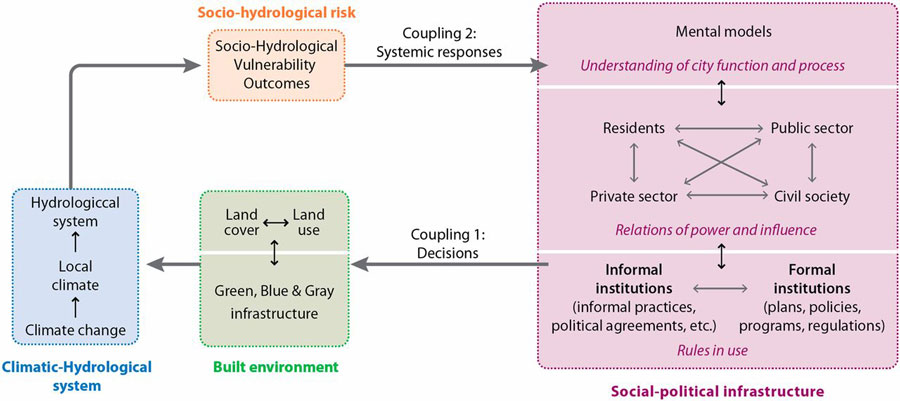A new article in Proceedings of the National Academy of Sciences (PNAS) explores how urban resilience can be strengthened by considering social and political norms, values and behaviours alongside engineering and environmental science approaches.
The article, Urban resilience efforts must consider social and political forces, is written by colleagues at Arizona State University and UNAM in Mexico, by a team with links to the North America hub of the STEPS Pathways to Sustainability Consortium.

The article lists a number of tools and approaches that can be used to integrate social insights with more technical and biophysical models. It highlights the importance of understanding how and why decisions are made.
Among the tools are ‘mental models’, geographic information science, multicriteria decision analysis and fuzzy cognitive maps – which can help scientists, residents and city managers to see what decisions might mean for vulnerability in a city. A case study on water management in Mexico City is used to demonstrate how people’s ‘mental models’ interact with institutions, the built environment and the climatic-hydrological system.
The STEPS North America hub is part of our ISSC-funded project on Transformative Pathways to Sustainability. As part of the project, researchers from Mexico and Arizona are creating spaces for dialogue and innovation to explore how to respond to the effects of urbanization on the wetlands in Xochimilco.
Read the article (PNAS website, open access)